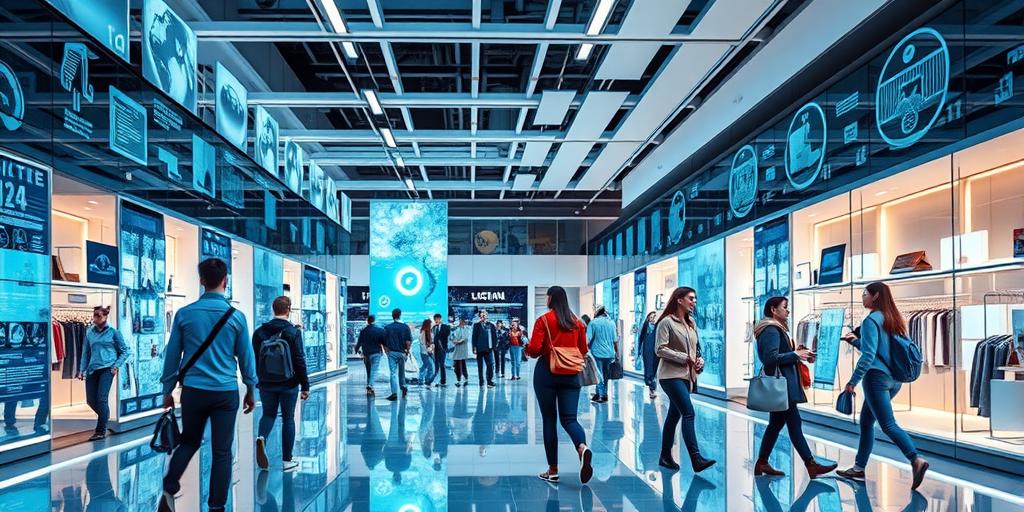The Evolving Landscape of Retail in the Digital Age
The retail industry is undergoing a seismic shift, driven by the relentless march of the digital economy. No longer can businesses rely solely on brick-and-mortar establishments to capture and retain customers. The future of retail lies in embracing digital transformation, leveraging technology to create seamless, personalized, and engaging experiences.
The Rise of E-commerce and Omnichannel Strategies
E-commerce has revolutionized the way consumers shop, offering unparalleled convenience and access to a global marketplace. However, the future of retail isn't solely about online transactions. It's about creating a unified omnichannel experience, where customers can seamlessly transition between online and offline channels. This means integrating online stores, mobile apps, social media, and physical locations to provide a consistent and personalized brand experience.
Personalization and Data-Driven Insights
In the digital age, data is king. Retailers can now collect vast amounts of data about their customers' preferences, behaviors, and purchasing patterns. By leveraging data analytics and artificial intelligence (AI), businesses can personalize the shopping experience, offering tailored recommendations, targeted promotions, and customized services. This level of personalization not only enhances customer satisfaction but also drives sales and loyalty.
Emerging Technologies and Innovations
The future of retail is being shaped by a wave of emerging technologies, including:
- Artificial Intelligence (AI): AI-powered chatbots, personalized recommendations, and predictive analytics.
- Augmented Reality (AR): AR-enabled shopping experiences that allow customers to visualize products in their own homes.
- Virtual Reality (VR): Immersive VR environments that create engaging and interactive brand experiences.
- Blockchain Technology: Secure and transparent supply chain management and enhanced customer trust.
- Internet of Things (IoT): Smart shelves, inventory management, and personalized in-store experiences.
The Importance of Customer Experience
In an increasingly competitive landscape, customer experience is the key differentiator. Retailers must prioritize creating exceptional experiences that delight customers at every touchpoint. This includes providing seamless online and offline interactions, personalized recommendations, responsive customer service, and engaging content.
Sustainability and Ethical Practices
Consumers are becoming more conscious of the environmental and social impact of their purchases. Retailers must embrace sustainable practices, promote ethical sourcing, and reduce their carbon footprint to appeal to environmentally and socially responsible customers. Transparency and traceability are essential for building trust and loyalty.
Adapting to the Changing Consumer Landscape
The future of retail requires businesses to be agile and adaptable. Consumer preferences are constantly evolving, and retailers must be able to anticipate and respond to these changes quickly. This requires a willingness to experiment with new technologies, embrace innovation, and continuously improve the customer experience.
Conclusion
The digital economy is transforming the retail industry at an unprecedented pace. To thrive in this new landscape, retailers must embrace digital transformation, leverage data-driven insights, and prioritize customer experience. By embracing innovation, sustainability, and ethical practices, retailers can create a future where shopping is seamless, personalized, and engaging.









